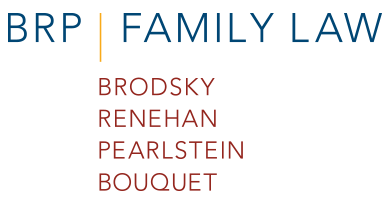
In Maryland, the laws surrounding child support, enforcement measures, and related issues are typically found within the Maryland Family Law Code. Specifically, provisions regarding child support enforcement and related matters may be detailed in Title 10 of the Maryland Family Law Article.
This title covers various aspects of family law, including child support guidelines, enforcement mechanisms, and procedures for addressing non-payment of child support. Individuals sometimes refer to child support rules, and punishments as the “deadbeat dad law.” Our Maryland family lawyer is here to explain what this law is.
What is the Deadbeat Dad Law?
“Deadbeat Dad Law” is not an official legal term but a colloquial expression that describes laws and enforcement measures designed to ensure that non-custodial parents meet their child support obligations.
Legal Framework of Maryland’s Deadbeat Dad Law
Maryland’s Deadbeat Dad Law is grounded in state statutes and regulations governing child support obligations. Under Maryland law, both parents are legally obligated to provide financial support for their children, regardless of their marital status or custodial arrangements.
The amount owed for child support is typically determined based on the income of both parents, but may also include other factors, including:
- The child’s needs
- Any special circumstances that may impact the child’s welfare
Once the court establishes a child support order, non-compliance violates Maryland’s “Deadbeat Dad Law”, subjecting the delinquent parent to legal and financial consequences.
Rights and Responsibilities of Custodial and Non-Custodial Parents
Both custodial and non-custodial parents have several rights and responsibilities regarding their children. Custodial parents have the right to seek child support from the non-custodial parent, and the court can legally enforce these obligations.
On the other hand, non-custodial parents have a legal duty to provide financial support for their children, as determined by the court.
Failure to fulfill this duty can result in severe consequences for the parent who is delinquent on their payment. In these situations, the state can enforce the order in several ways. A family law attorney in Maryland can help you deal with some enforcement methods so that you do not suffer harm.
Methods for Enforcing Child Support Order
When a parent falls behind on their child support order, they can face various penalties and consequences. Some of the methods used to enforce a child support order include:
- Wage Garnishment: Maryland frequently issues income/earningwithholding orders as a primary method for enforcing child support orders. This procedure entails the automatic deduction of child support payments directly from the wages or income of the non-custodial parent. Employers are legally obligated to comply with income withholding orders issued by the Maryland Child Support Enforcement Administration (CSEA). This ensures a consistent flow of payments to the custodial parent.
- Interception of Tax Refunds: Maryland law allows for the interception of federal and state tax refunds to satisfy outstanding child support obligations. The CSEA can intercept tax refunds and apply them toward overdue child support payments, providing an additional avenue for enforcement.
- License Suspension: Failure to pay child support can result in the suspension of various licenses, including driver’s licenses, professional licenses, and recreational licenses. The threat of license suspension is a significant deterrent, motivating non-compliant parents to fulfill their obligations to avoid such consequences.
- Property Liens: In significant arrears when a judgment has been entered, a lien may be placed on the non-custodial parent’s assets or property. This means that the amount owed in child support becomes a legal claim against the individual’s property, which must be satisfied before the property can be sold or transferred.
- Credit Reporting: Delinquent child support payments can negatively impact the non-custodial parent’s credit score. Maryland may report overdue child support to credit bureaus, damaging the individual’s creditworthiness and making it challenging to secure loans or lines of credit in the future.
- Contempt Proceedings: If a non-custodial parent repeatedly fails to comply with a child support order despite enforcement efforts, the court may initiate contempt proceedings. This involves holding the individual in contempt of court for willful non-compliance, which can lead to fines or imprisonment.
A family law attorney in Maryland can help you better understand your rights and the potential consequences that you may face. A Maryland family lawyer can also help you present evidence demonstrating that you will not neglect to pay your support. This can provide you with more time to pay your support, obtain a modification, or make other arrangements.
Call Our Maryland Family Lawyer For Help
If you face potential consequences for failing to pay your child support order, you must seek help from our Maryland family lawyer immediately. For decades, our attorneys, Brodsky Renehan Pearlstein & Bouquet, have helped individuals across Maryland understand their rights and legal options regarding child support orders.
Contact our family law attorney in Maryland to schedule a consultation to discuss your options.






